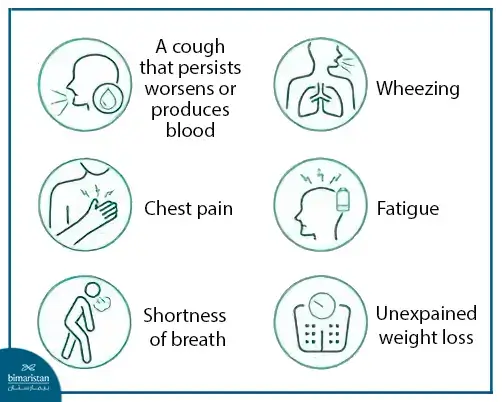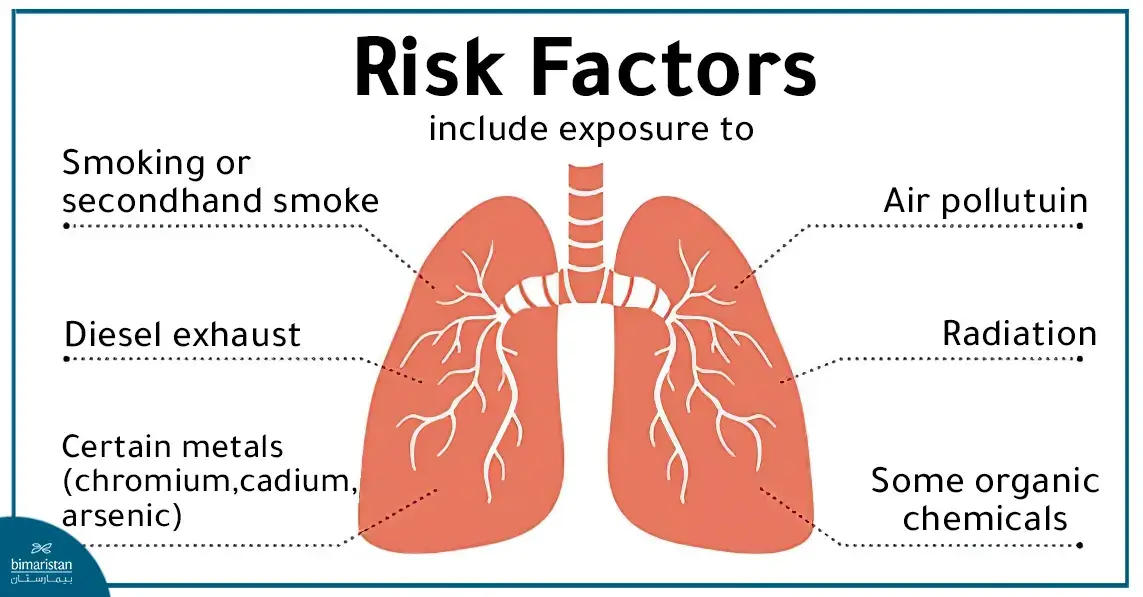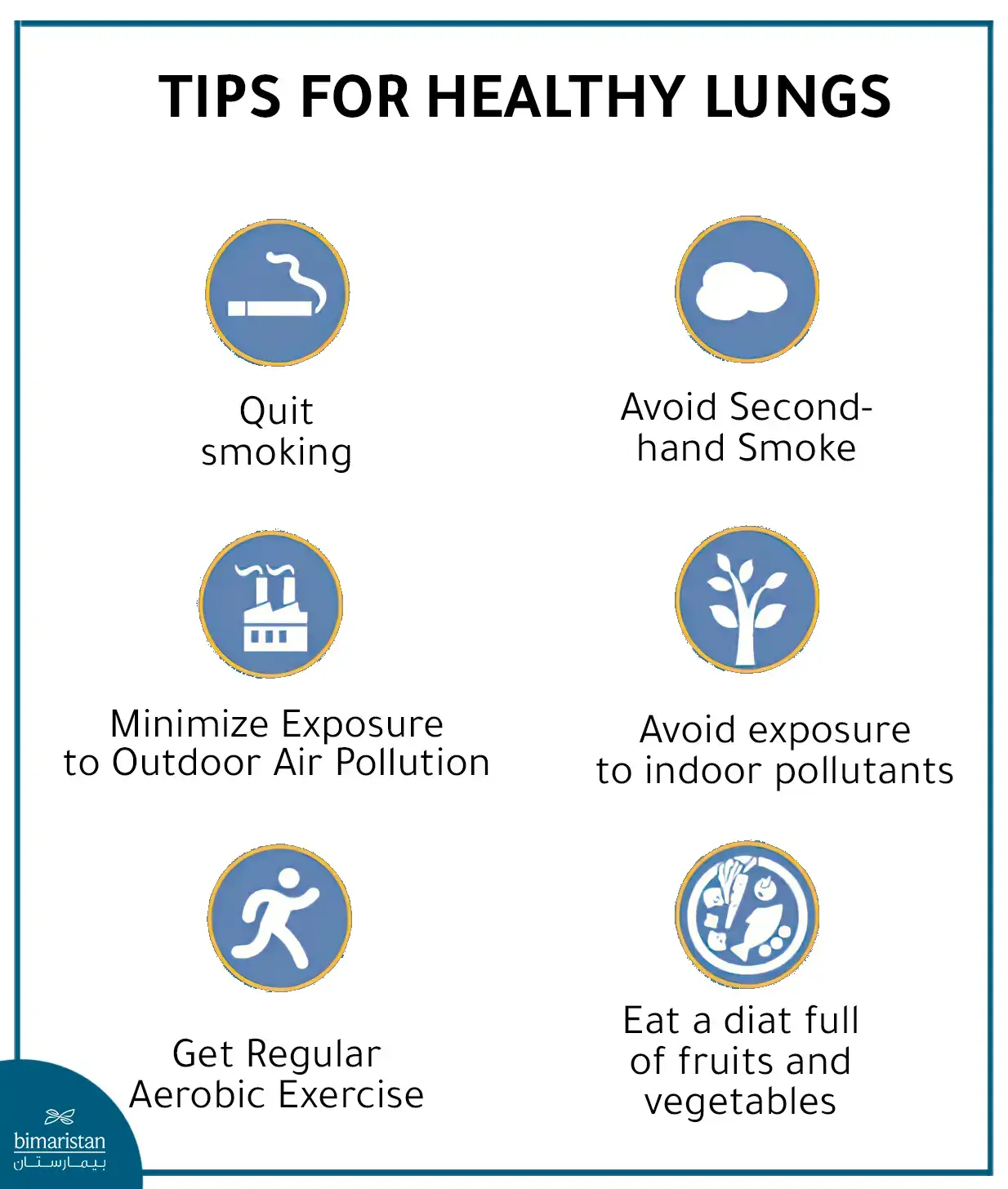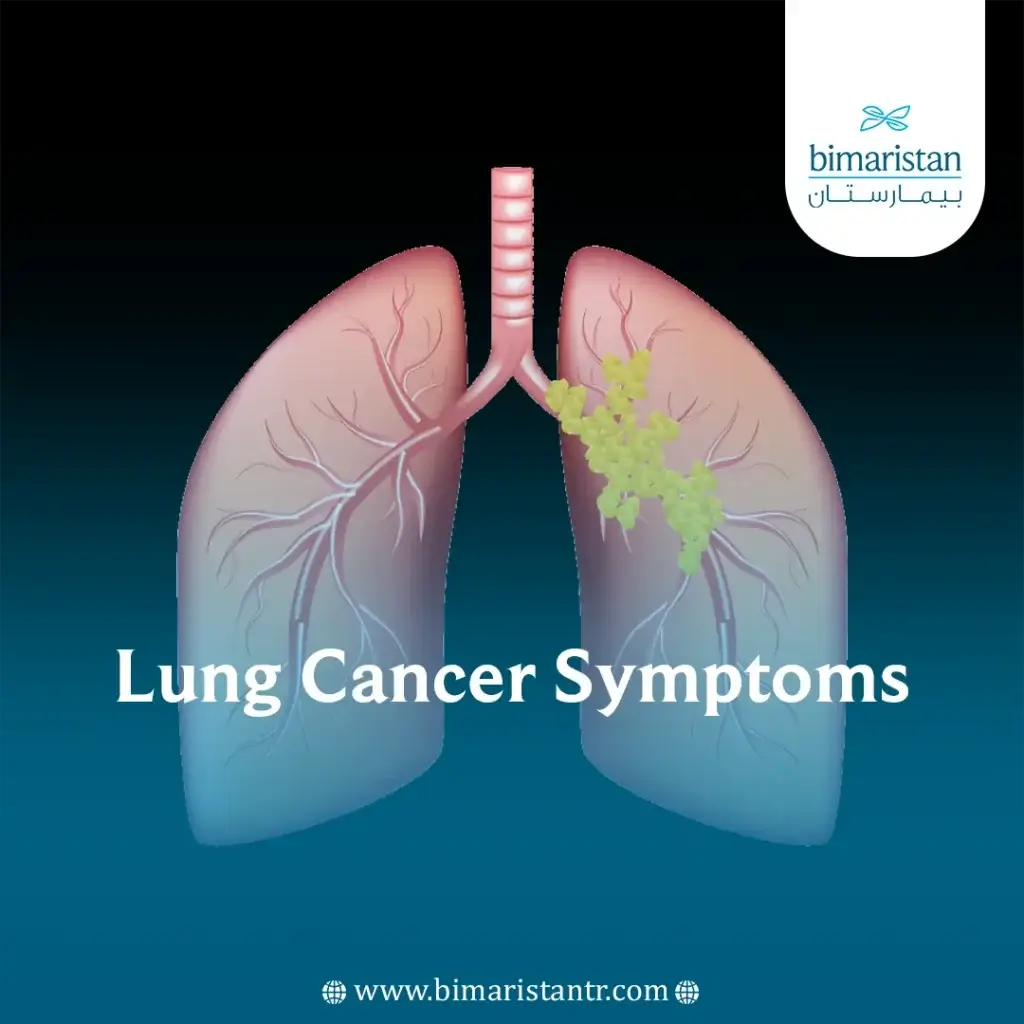Lung cancer is the most fatal type of cancer, so Early recognition of Lung Cancer symptoms improves recovery chances.
Early Lung Cancer Symptoms
The initial symptoms of lung cancer may not be clear, as some people do not experience any symptoms until the tumor is in advanced stages. However, some individuals may notice early symptoms of lung cancer. Early signs of lung cancer include:
- A persistent cough lasting for months without any clear reason, especially if accompanied by blood in the sputum, is one of the first signs of lung cancer.
- Shortness of breath or difficulty breathing in general.
- Chest pain, especially when taking deep breaths or coughing.
- Unexplained weight loss due to the tumor’s impact on the digestive system or the disease in general; weight loss might be one of the first symptoms of lung cancer.
- Extreme fatigue and exhaustion.
- Hoarseness is a significant symptom if the tumor affects the nerves responsible for the laryngeal muscles.
- Loss of appetite.
People experiencing symptoms of lung cancer should consult a doctor for an evaluation and necessary tests for an accurate diagnosis and treatment if needed. It’s important to note that the presence and severity of early lung cancer symptoms can vary from person to person due to multiple factors.
Bimaristan Medical Center offers the latest tools for early detection and diagnosis of lung cancer and the best treatment plans for it according to each patient’s cancer stage.

Advanced Lung Cancer Symptoms
As lung cancer progresses to more advanced stages, symptoms may become more severe. Late-stage Lung cancer symptoms (metastatic lung cancer symptoms) include:
- Severe shortness of breath that significantly worsens due to tumor growth in the lung, affecting the lung’s ability to ventilate and deliver oxygen properly.
- Increased chest pain due to tumor swelling or spreading to the tissues surrounding the lung.
- Noticeable increases in fatigue and exhaustion may be accompanied by unexplained weight loss, reflecting disease progression.
- Bone pain or headaches, as lung cancer may spread to the bones or brain in its advanced stages, are among the key symptoms of lung cancer metastasis.
- Tumor spread can lead to swollen lymph nodes in the neck or swelling in the face or neck.
These are some symptoms of advanced lung cancer (stage 4 lung cancer symptoms). Individuals showing symptoms should see a doctor for evaluation and accurate diagnosis.
What Causes Lung Cancer
Lung cancer is caused by genetic mutations in lung cells, leading to abnormal and unregulated cell growth and the formation of malignant tumors. Several factors can increase the risk of developing lung cancer, including:
- Smoking: The primary cause of lung cancer, as tobacco smoke contains hundreds of toxic and carcinogenic chemicals that can damage lung cells and turn them cancerous.
- Secondhand smoke or indirect exposure to smoke is when smoke is inhaled in the surrounding environment.
Non-smokers’ causes of lung cancer include:
- Occupational exposure to chemicals like mineral salts, asbestos, and environmental pollutants, especially for factory workers using these carcinogens.
- Genetics and hereditary factors, such as a family history of lung cancer, may increase the risk of developing it.
- Exposure to various types of radiation can contribute to lung cell mutations and the development of lung cancer.
- Previous lung diseases, such as chronic obstructive pulmonary disease (COPD) and chronic pneumonia.
These factors are important considerations when assessing lung cancer risk. However, many cases cannot be explained by known factors, and much research is still investigating other potential contributors to lung cancer development.

How to Prevent Lung Cancer
Raising awareness about lung cancer and how to avoid it is crucial due to its life-threatening nature. Several steps can be taken to mitigate the risk of lung cancer. Lung cancer prevention tips include:
- Quitting smoking is the most important step to prevent lung cancer, as well as avoiding secondhand smoke exposure.
- Avoiding exposure to environmental pollutants that may increase the risk of lung cancer.
- Regular exercise, a healthy diet rich in fruits and vegetables, and maintaining a healthy weight.
- Regular medical screenings for early lung cancer detection, including annual chest X-rays for those exposed to high-risk factors.
- Minimizing exposure to various types of radiation, especially in environments with frequent X-ray exposure.
Remember, prevention is better than cure, and following these steps can significantly reduce the risk of lung cancer.

In conclusion, we emphasize the importance of raising awareness about the effects of lung cancer and the importance of early detection through recognizing its symptoms. Early detection of lung cancer symptoms greatly increases the chances of complete recovery.
Sources:

